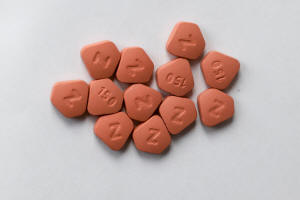First trial over Zantac cancer claims set for November
 Send a link to a friend
Send a link to a friend
 [July 01, 2023]
By Brendan Pierson [July 01, 2023]
By Brendan Pierson
(Reuters) - The first U.S. trial over claims that discontinued heartburn
drug Zantac causes cancer is now expected to take place in California
state court on Nov. 13, a lawyer for plaintiffs in the litigation said
Friday.
Plaintiffs in the litigation claim that Zantac causes nine forms of
cancer, including colorectal, breast and bladder cancer.
A trial in a case brought by a different plaintiff had been expected
next month, but it was called off after the pill's British drugmaker GSK
Plc, the only defendant in the case, settled for an undisclosed amount
without admitting liability.
Thousands of lawsuits over Zantac have been filed in California against
GSK, Sanofi SA, Pfizer Inc and Boehringer Ingelheim, which all sold the
drug at various times.
The trial is meant to serve as a test of the claims' strength, and its
outcome could shape negotiations toward a broader settlement.
Not all the companies, which have repeatedly denied that Zantac can
cause cancer, are named in each lawsuit. Which specific case will go to
trial in November has not yet been determined, according to a
spokesperson for GSK.

First approved in 1983, Zantac became the world's best selling medicine
in 1988 and one of the first-ever drugs to top $1 billion in annual
sales. It was originally sold by a forerunner of GSK.
[to top of second column]
|

Zantac heartburn pills are seen in this
picture illustration taken October 1, 2019. REUTERS/Brendan McDermid/Illustration/File
Photo
 In 2019, some manufacturers halted
Zantac sales over concerns that its active ingredient, ranitidine,
degraded over time to form a chemical called NDMA. While NDMA can be
present in low levels in food and water, research has found it
causes cancer in larger amounts.
The FDA in 2020 withdrew from the market all remaining brand name
Zantac and generic versions.
The drugmakers scored a major victory in December, when a federal
judge threw out all of the Zantac cases in U.S. federal court, some
50,000, after finding the opinions of the plaintiffs' expert
witnesses linking the drug to cancer were not backed by sound
science.
The remaining cases are in state courts, most of them in Delaware,
where more than 70,000 cases are pending.
(Reporting By Brendan Pierson in New York; Editing by Alexia
Garamfalvi and Aurora Ellis)
[© 2023 Thomson Reuters. All rights
reserved.]This material may not be published,
broadcast, rewritten or redistributed.
Thompson Reuters is solely responsible for this content. |